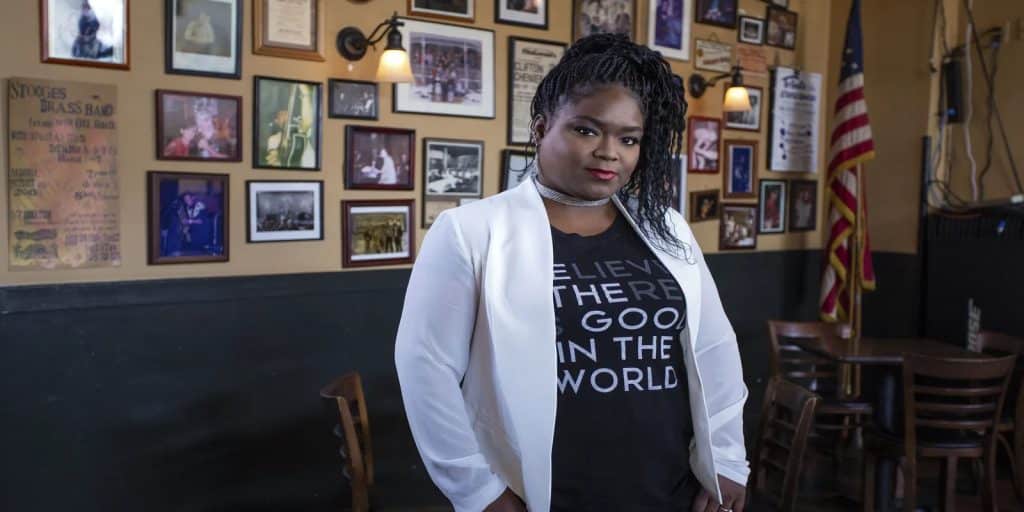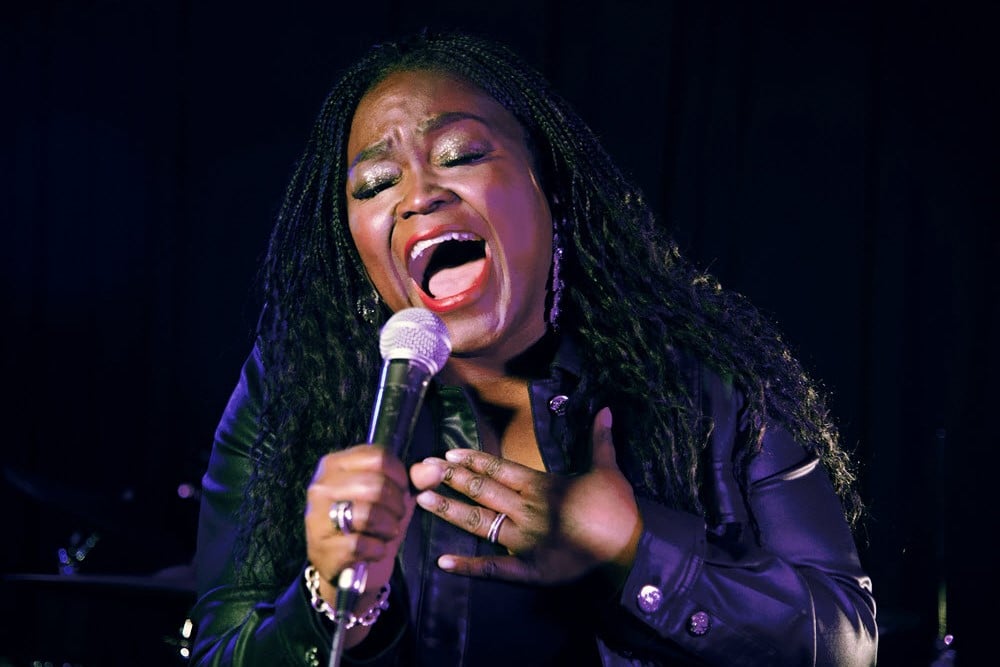Shemekia Copeland asked “Who Stole My Radio?” in a song that laments the corporate grab that’s diminished the sounds of her youth. The lyrics are a fierce interrogation, and the culprit is familiar.
Who stole the funk?
Who stole the soul?
Who took the rock out of rock and roll?
It’s a shame, it’s a crime
But I’m here, it’s just a waste of my time
I wanna know (I wanna know)
I wanna know (I wanna know)
Who stole my radio?
These days, Copeland does what she can to rescue the music she loves as a host on B.B. King’s Bluesville SiriusXM station. “It’s so specific,” she says. “It’s just blues, a 100 years’ worth, and that’s perfect. I love being a part of that. We play everything from 1920 to 2020. So it’s wonderful. It’s fun for me. I just get to go in there, talk about the music, talk about my friends, and really get to enjoy myself, playing all the legends.”
By now, Shemekia Copeland has entered the American blues canon herself, thanks to a slew of boisterous, uncompromising records best embraced as guides to better living. Biographies are quick to acknowledge her musical heritage. Yes, she’s the daughter of the late Johnny Copeland, the Hall of Fame Texas blues everyman who finally achieved celebrity with 1981’s Copeland Special, but she immediately established herself as a singular presence with her 1988 debut, Turn the Heat Up! Since then, she’s given us albums that are rowdy, sexy, angry, and pensive, delivered in her signature shout or silk.
Her last three records evolved into an unplanned trilogy, beginning with America’s Child and Uncivil War. Here, she refined her focus, her topical songs sharpened by a journalistic concern for detail and a historian’s respect for veracity. Each captures America in a freeze frame, finding reasons for reverence and reproach. She completed the movement with last year’s Done Come Too Far, a project that would not be derailed by the pandemic.
“I just kept on putting out records,” says Copeland. “I put out one of my best records, Uncivil War, during COVID. At one point we were not gonna put it out. I said, ‘Let’s do it.’ It was weird for a touring artist to make a record and not be able to tour it. But we did because we thought that it was an important record and that it needed to come out. Also, I had taken time off, anyway. I had my little guy in 2016. He was still small, so he kept me very, very busy during the pandemic. It went by pretty quickly for me for that reason.
“When I made America’s Child, it was just after I had my little guy. What I was putting out into the universe became that much more important to me. Later, I felt like we could have just kept going with that record. Uncivil War was a continuation of that record, which was really awesome. We finished that December of 2019, and then after 2019, all hell broke loose. We ended up having to make another record. That’s how Done Come Too Far came about.”

Despite what some critics suggest, Copeland’s turn towards more political fare didn’t happen overnight. She says, “It started for me a little earlier than that when I ended up going to Iraq and Kuwait, performing for our troops. Before then, I was doing songs about social injustice, religious hypocrites, all different types of things. I started there, but then it shifted after I had my little guy because I wanted to make the world a better place in some way, shape, or form through my music. That’s when I did ‘We Ain’t Got Time For Hate.’ After 2019, I was doing more songs about my awareness, having my little guy.”
In some ways, Done Come Too Far plays an indictment. “Pink Turns to Red” asks how many more students have to die before our country confronts its gun lust; “The Talk,” a title that sounds like an unearthed Loretta Lynn number about the birds and the bees, narrates the conversation mothers of color must have with their children about a system that doesn’t protect but targets them; “Dumb It Down” regrets a generation obsessed with social media ‘likes” and reality television. But Copeland offers another choice– hope, an embrace of the simple things (“Fried Catfish And The Bible”), love that crosses racial barriers (“Fell In Love With A Honky”), and dogged perseverance and faith (“Too Far To Be Gone”).
When asked why people opt for lives driven by materialism, distrust, and hate, she doesn’t flinch with her answer: corporations. “Look at media,” she says. “Media is designed to keep us battling over silly stuff that means nothing. If everyone could get off the idiot box and everybody decided to realize that we’re all the same, we’d understand that we have absolutely nothing in common with politicians. I always say that. You put your full backing behind these politicians who have amazing health care. They don’t have to worry about where their kids go to school. They don’t have to worry about day-to-day issues that we have to deal with. But somehow you think they have something in common with you. You’re talking about millionaires, billionaires who have absolutely no concept of how normal people have to live. If we got away from all of that and realized we’re all one and the same, I think we would be so much better off as a society really realizing that we’re one and the same.”
On September 23rd, Copeland will perform at The Blind Willie McTell Music Festival, playing a set that strikes a balance between new and old favorites. After that, she’s looking forward to recording a record that veers from the politics of her essential trilogy. “I’ve done three records like this, so I’m about to switch it up,” she says.” I don’t like to do what people expect. So, now I gotta change things.”
Can she give us a hint of what’s to come? Not a chance.
“Well, how will I get you to wanna talk to me again if I if go ahead and tell you?”
Charlie Farmer is a Georgia writer and professor who loves his wife, his daughters, his students, his cats, his books, his LPs, and everything else one should love in life.
